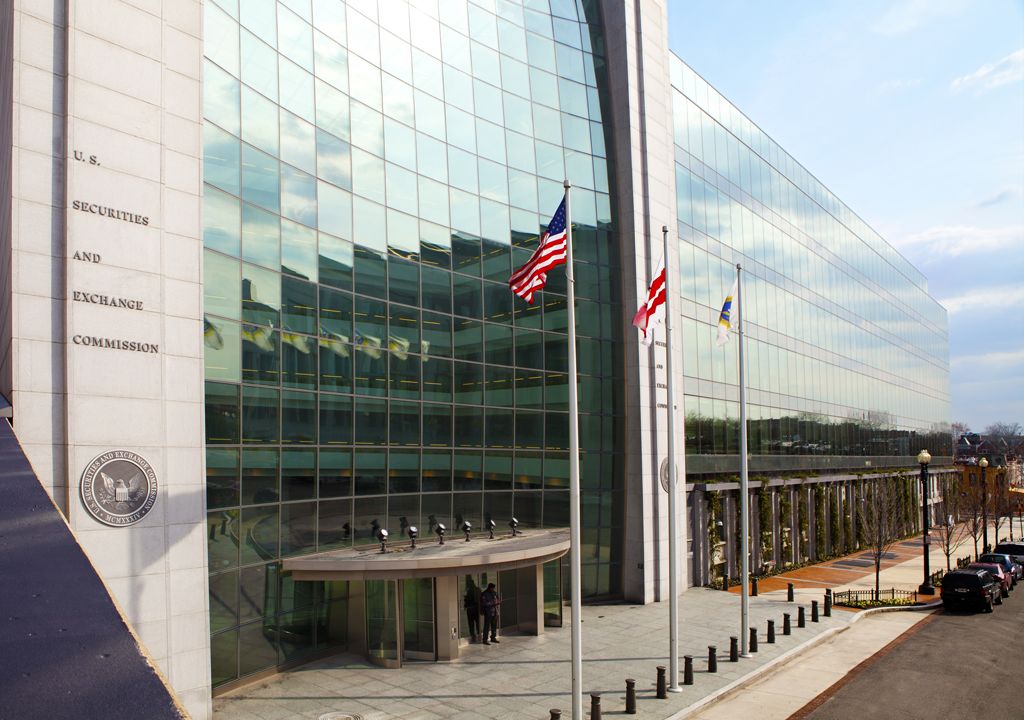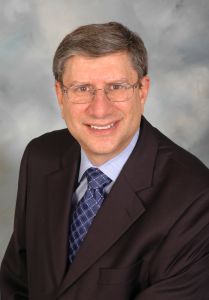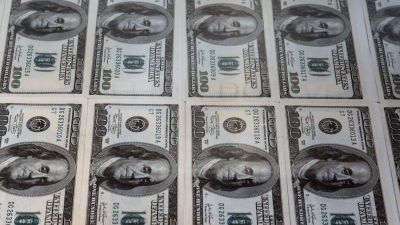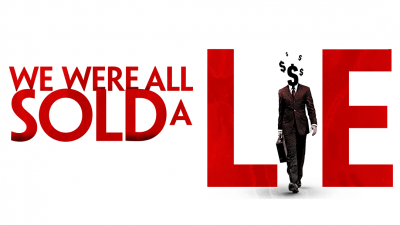
A tiny Washington nonprofit has been left to do what the Securities and Exchange Commission won't. (Photo: Securities and Exchange Commission via Flickr)
The Securities and Exchange Commission won’t do it; Congress is emphatically against the idea. But if you think it’s impossible to get corporations to draw back the curtain on their political contributions in the post-Citizens United era, don’t tell Bruce Freed.
Operating on a budget that’s less than some CEOs make in a week and with a staff that’s smaller than some families, Freed is politely but insistently wedging a reportorial gumshoe where federal authorities fear to tread.
A former journalist, Capitol Hill staffer and even (briefly) a lobbyist, Freed 13 years ago started the Center for Political Accountability, a small, Washington-based nonprofit that over the years has managed to persuade, cajole and browbeat some of the nation’s largest corporations into providing some public disclosure of what they’re doing to influence the electoral process.
According to the Center’s latest annual report, released Thursday, some 153 leading companies, including more than half of the S&P 100, have now adopted some form of political disclosure and oversight of their political activities.
Some of the companies scoring in the Center’s top tier when it comes to transparency are blue-chippers such as General Mills, Coca-Cola, JPMorgan Chase, Bank of America and UPS. Of course there are many other well-known publicly traded corporations whose records are, as Freed diplomatically puts it, “problematic”: Berkshire Hathaway, Expedia, Netflix and Urban Outfitters are among companies that laid a big goose egg on the Center’s transparency score.
But Freed takes the long view about the spotty showing. When he first started trying to push corporate political transparency more than a decade ago, he said, the number of companies practicing it was “zippo.”
Today, 229 members of the S&P 500 report that their boards of directors regularly oversee political spending; at 147 companies, the board reviews contributions to trade associations, which can make political expenditures without disclosing donors. Of the 500 companies, 171 disclose at least some information to state candidates, parties and committees (corporations are still prohibited from giving directly to federal candidates) and 113 disclose some information about contributions to 501(c) “dark money” groups.
Most significant, in Freed’s view, is that the number of companies opting for some sort of director oversight and transparency on political giving keeps growing from year to year. “We’re on the way to making it a norm,” he said.
— Bruce Freed, Center for Political Accountability
Some of the corporate money in politics — such as donations made through employee-funded political action committees or contributions by individual corporate officers to candidates — are already public under federal law. But much is not, especially after the Supreme Court’s 2010 Citizens United decision that allowed corporations to spend unlimited sums to influence federal elections, so long as the money does not go directly to candidates.
A lot more corporate money goes well under the media radar. In many states, corporations can give directly to candidates, which makes them major players in elections that don’t often get the same level of scrutiny as presidential or even congressional races.
“We calculate that corporations are responsible for the greatest spending in the political arena,” including a “massive engagement” in state and local elections that often goes unnoticed, Freed and a colleague, Marian Currinder, wrote in an essay earlier this year for US News and World Report.
The Center for Political Accountability has gotten corporations to open up on their contributions with a combination of carrots and sticks and without a lot of money. The Center’s latest 990, an IRS disclosure form filed by nonprofits, lists $383,000 in revenues (read: donations) during 2014. That’s less than one one-hundredth of the salary of some of the country’s best-paid CEOs. The Center’s budget funds a small staff, only three of whom are full time.
Borrowing a tactic used by social activists, the Center asks company shareholders to press for votes on disclosing corporate political contributions. Though the Center and its allies have yet to win one of those votes, Freed says they are regularly hitting the 30-percent mark — a threshold that has caused some corporations to reach agreements with transparency-demanding shareholders rather than risk an embarrassing loss. According to CPA’s latest report, 128 companies that provide some disclosure of their political activity do so because of agreements they reached with shareholders.
The CPA’s annual index of corporate political disclosure, launched in 2011 with the Lawrence Zicklin Center for Business Ethics Research, has also proven a motivator. CPA gives companies a heads-up about their scores before publication, and many have asked for advice about how to improve their score. This year’s index rates 15 companies “most improved” for improving their scores by 50 points or more over the past year.
Extending his outreach to corporate decision-makers, Freed and two legal experts on campaign law last year wrote an essay for the Harvard Business Review to help company directors understand political spending. “The freedom bestowed on corporations by Citizens United comes with serious risk,” the piece noted, citing examples of how campaign contributions have embroiled companies in controversy and, in some cases, even contravened stated company values. The authors recommended, among other things, that companies disclose political spending and ensure that corporate boards oversee it.
The Center for Political Accountability has found support in some unlikely quarters: The forward to this year’s annual index is written by Charles Kolb, a former aide to Republican President George H.W. Bush. He calls corporate transparency an antidote to “crony capitalism” and the pervasive sense that “the system is rigged.” And Freed said he has strong allies in major firms such as Microsoft and Prudential.
The work of the David-like Center has drawn opposition, however, from a political goliath: The US Chamber of Commerce (2014 revenues: $206 million), is a critic. A smaller nonprofit (but still with revenues about five times those of Freed’s organization), the Center for Competitive Politics, argues that the Center is in the business of “silencing corporate speech.”
Transparency advocates, on the other hand, argue that while the Center’s work is “a good start,” it’s not enough.
Freed agrees with that assessment. “An SEC rule is important to make [disclosure] uniform and universal,” he said, adding that, privately, many companies have told him that too. “If they’re doing it, they want their competitors to do it,” Freed said.
For Robert Jackson, a Columbia Law School professor who has been trying for five years to get the SEC to require corporations to make political donations public, the ultimate tribute to the Center’s “extraordinary” work would be for the feds to take it over. “It can’t be in the most robust economy in history of humankind that we rely on a tiny nonprofit with three staffers and a caffeinated director to make sure we have transparency on the role of corporations in politics,” he said. “What the SEC is doing right now by failing to act is basically relying on Bruce to do its job.”





